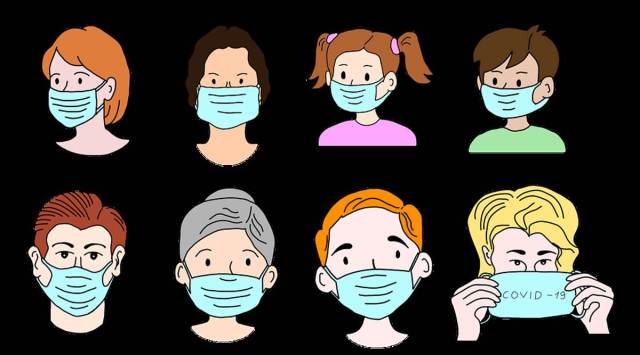- India
- International
How can you take care of a loved one recuperating from COVID-19? Find out
Anxiety is frequently seen in patients recovering from the illness -- causes of which can vary from the social distancing norms to fear of progression of the illness, says Dr Kedar Tilwe of Fortis Mulund & Hiranandani Hospital, Vashi
 The stigma associated with COVID-19 can be a cause for concern, especially as the person may blame themselves for being the point source of spread, and possible exposure of their loved ones. (Source: Pixabay)
The stigma associated with COVID-19 can be a cause for concern, especially as the person may blame themselves for being the point source of spread, and possible exposure of their loved ones. (Source: Pixabay)It is often said that physical health and mental well-being are inter-connected. If you are physically not doing okay, you are bound to feel low mentally, too. In this pandemic, people have started to take care of themselves like never before. Which is a good thing, considering these are unprecedented times and people need to be there for their loved ones.
Dr Kedar Tilwe, psychiatrist, Fortis Mulund & Hiranandani Hospital, Vashi, says that because of the nature of the infection, the quarantine requirements and the relatively long convalescence period, the help provided by support groups — like family and friends — is crucial for a person who is looking to make a smooth recovery.
He suggests some hurdles and possible solutions that you need to be aware of, should your loved one be recuperating from the illness.
ALSO READ | ‘I am depressed’: Ira Khan talks about her brave struggle with mental health
* The stigma associated with COVID-19 can be a cause for concern, especially as the person may blame themselves for being the point source of spread, and possible exposure of their loved ones. Constant reassurance and patience needs to be shown when dealing with such a situation, as well as keeping the focus on recovery, rather than the cause.

* The daily activities can also be one of the areas of difficulty for a person recovering from moderate to severe form of the illness; especially on the account of the fatigue produced by it. Helping them deal with their daily chores not only allows for the person to get much needed physical rest, but also is a gesture of mental assurance and show of support, the doctor says.
* Anxiety is frequently seen in patients recovering from the illness — causes of which can vary from the social distancing norms to fear of progression of the illness and of contaminating others, as well as worries about the future and a sense of being a burden on the family. Having an open discussion with your loved ones, discussing their anxieties and helping them cope through relaxation exercises or mindfulness practices can help.
ALSO READ | Face masks vs face shields: Here’s what you need to know
“Major psychiatric disorders such as depression and post traumatic stress disorder (PTSD) may also get precipitated due to the stress associated with the diagnosis, the unfamiliar experience during admission and the treatment process. Helping them identify and adapt to these situations is perhaps one of the most important roles that you will play as a caregiver. If needed, you can also seek the help of a mental health professional nearby,” suggests Dr Tilwe.
He also points out that ‘caregiver burden‘ is a known issue and also a major one that people are unaware of. “One thing we need to remember is, if we (or anyone we know) are getting stressed, we must reach out for help.”
For more lifestyle news, follow us: Twitter: lifestyle_ie | Facebook: IE Lifestyle | Instagram: ie_lifestyle
May 02: Latest News
- 01
- 02
- 03
- 04
- 05
























